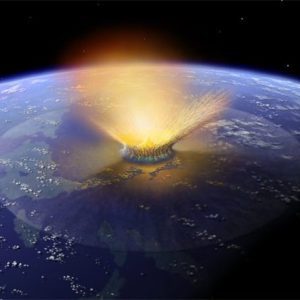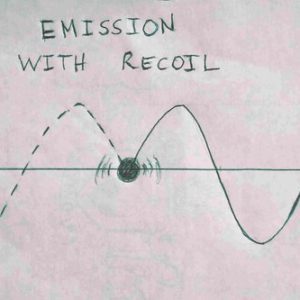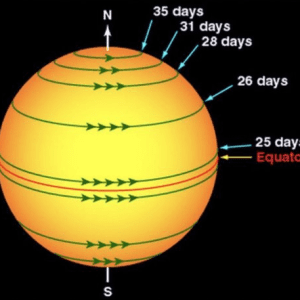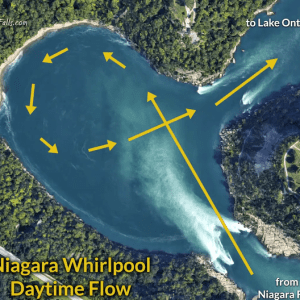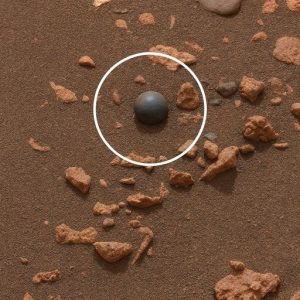This is a post melt map of North America courtesy of National Geographic.
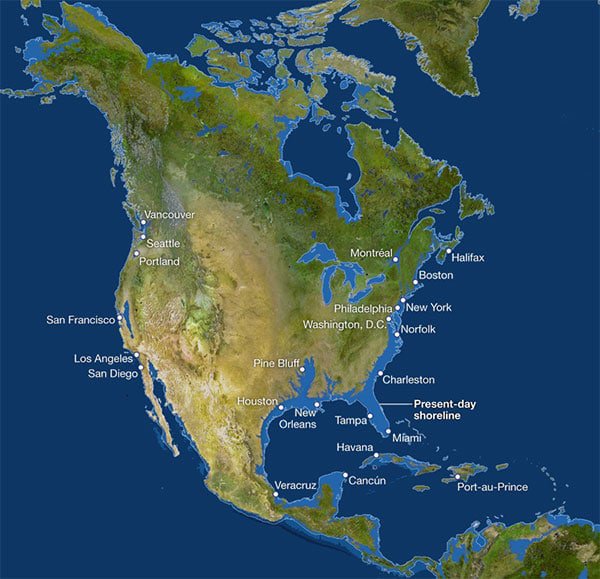
And this is Europe

The light blue on the ocean and sea coasts is currently land that would be submerged after the melt.
And this is the world.
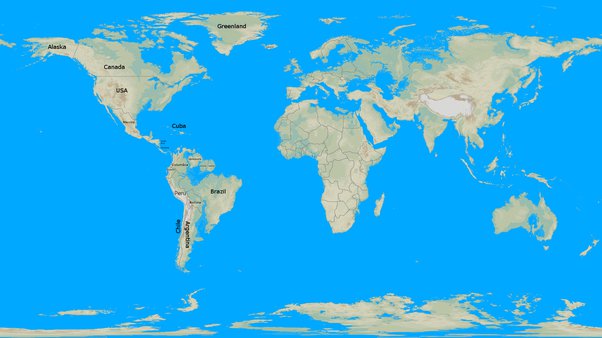
The land surface of the world would go from about 25% to about 21% of the whole.
Climate Central have predictions for the year 2050 on an interactive map. This is less than thirty years from now…
Sea level rise and coastal flood risk maps — a global screening tool by Climate Central
Interactive global map showing areas threatened by sea level rise and coastal flooding.
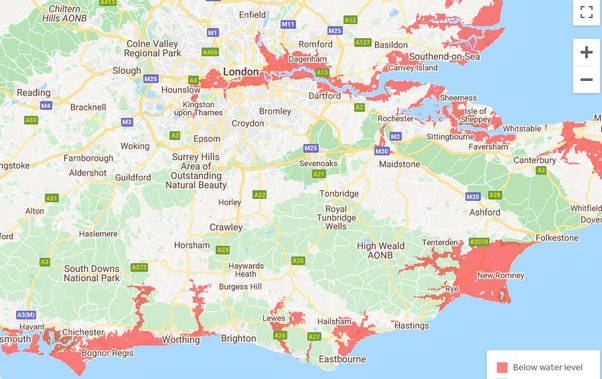
London and the SE of England
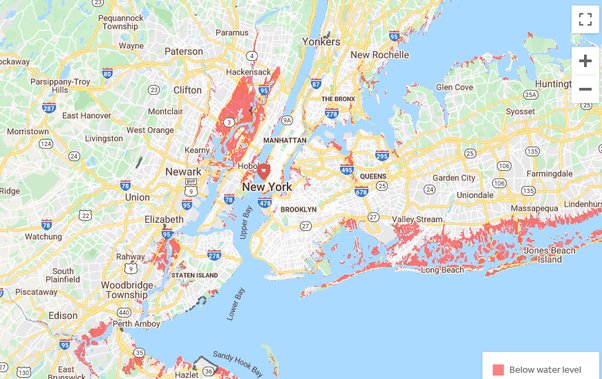
New York
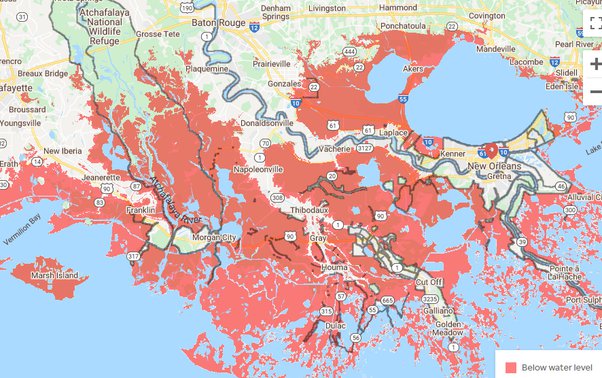
New Orleans
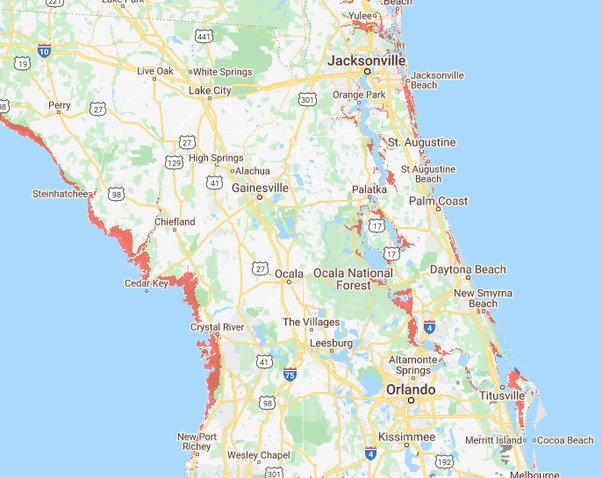
Orlando
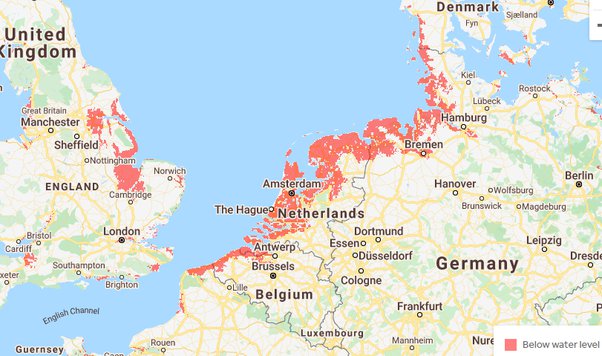
Northern Europe

Southern China
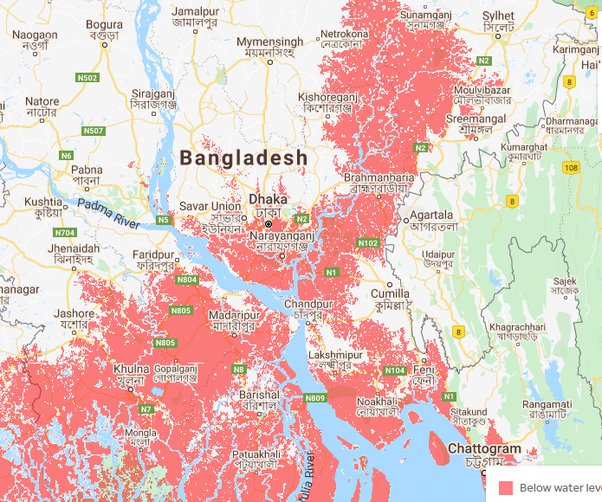
Bangladesh
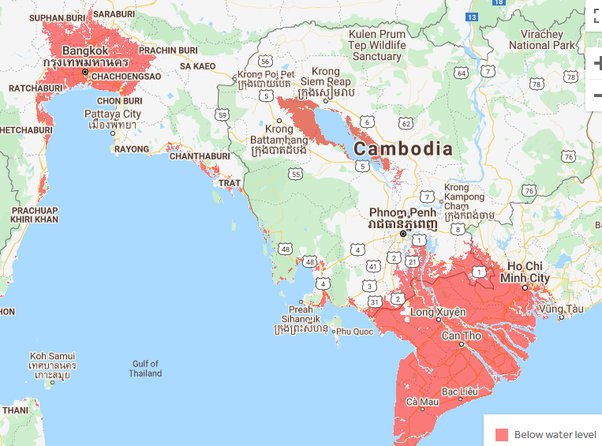
Thailand and South Vietnam

